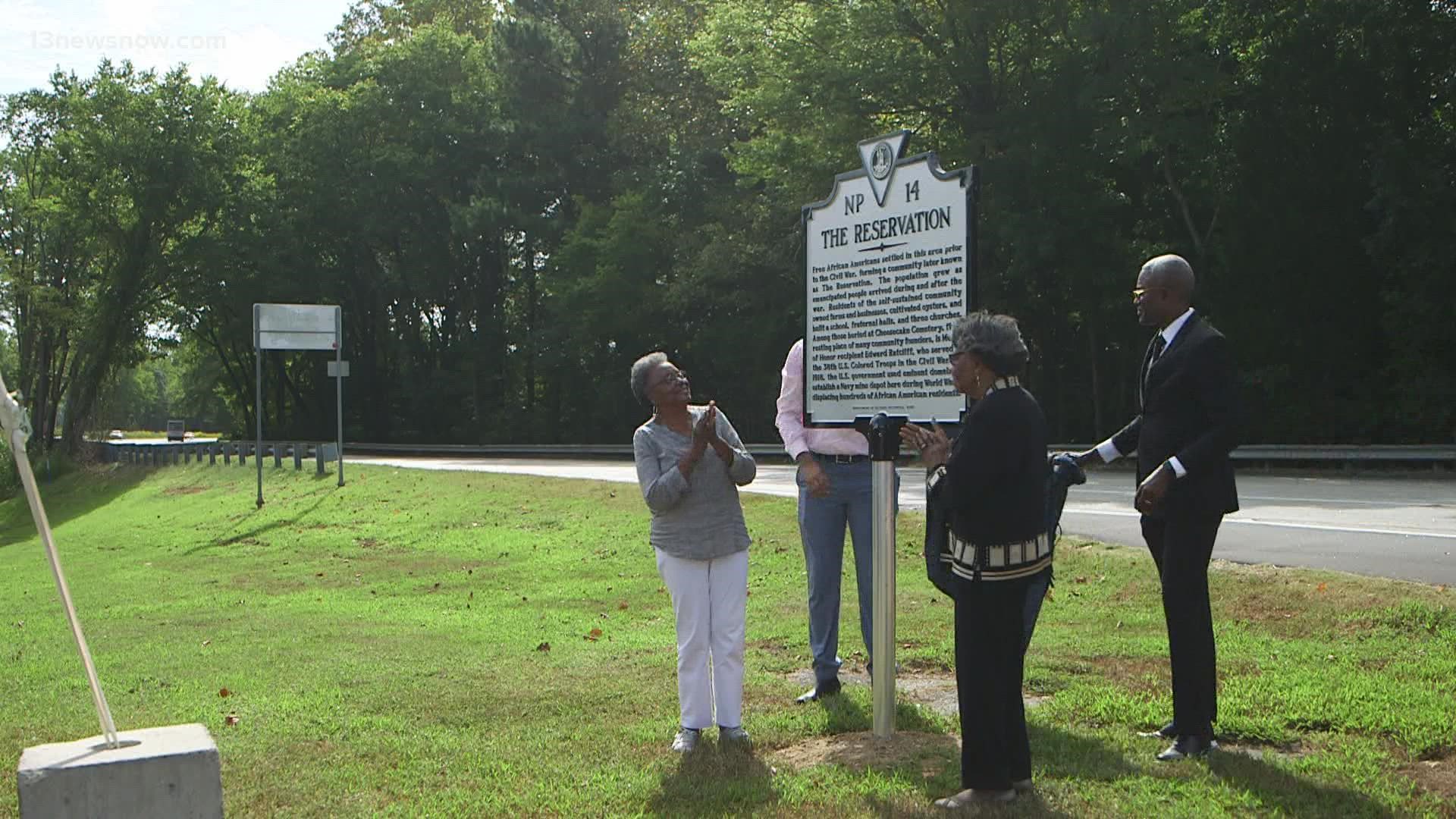YORKTOWN, Va. — As a young child, Vicki Simons had heard the term "The Reservation" growing up, but it wasn't until her early 20s that she really understood the meaning.
It was a community of free African American families that dates back to the mid-1800s.
“You can come to this Historic Triangle, this historic area, and I did not know until my 20s what our contribution was to that history because it wasn’t being told externally," Simons said.
Simons, now with a family of her own living in Maryland, is one of the hundreds of living descendants of this community. These family origins can be traced back to the banks of the York River before the Civil War.
“We were actually talking about an entire community of African Americans who lived in this place prior to the Civil War, and they were free African-Americans. Most people when they hear about the history of the south think that prior to the civil war, all black people were enslaved, and then came the Emancipation Proclamation and then everyone was free. What they don’t often know is that were free African Americans prior to the Civil War," Simons said.
Simons is a descendant of the Hundley family lineage, as is Yvonne Johnson.
“You can’t pick up a history book and realize people lived here, much less free African Americans working for themselves.”
The Hundleys are only one of several families that constituted The Reservation's makeup. Mary Lassiter, a descendent of the Lee/Minkins family lineage, said she only discovered some of the intimate details about The Reservation within the last couple of years.
"One of the lessons is: learn about your family. When you learn about their struggle, it should make you stronger," Lassiter said.
During the Jim Crow era, these families maintained their freedom as self-employed farmers and oystermen.
These families lived and thrived on the land in the Historic Triangle until a presidential proclamation in 1918 claimed thousands of acres of land for a Navy mine depot, which is now the current-day Naval Weapons Station Yorktown (NWSY).
That proclamation included the land in which the free African American families lived, leading to their displacement.
“We can’t imagine what that would be like today. We’d have moving vans, but if someone said ‘you have to vacate your house and find somewhere else to stay," Lassiter said.
“The reason a lot of people don’t know about it is because it’s difficult to talk about," Johnson said.
According to a dissertation published by Shannon Mahoney in 2013 at William & Mary, the land is now "a maze of well-maintained dirt and asphalt roads surrounded by oak and pine woods."
More than 100 years after the displacement of these families, members of the Hundley family history committee came up with the idea to apply for an official historical Virginia marker along Jefferson Avenue outside of NWSY to honor this story.
On Sept. 10, descendants traveled from across the country for the historical marker unveiling.
“If this marker is not posted there, our history would slowly disappear," Johnson said.
"You have to know what your family has gone through to understand what your life is like now," Lassiter said.
"The Reservation" plaque now joins more than 2,500 official state markers across the Commonwealth. It reads:
"Free African Americans settled in this area prior to the Civil War, forming a community later known as The Reservation. The population grew as emancipated people arrived during and after the war. Residents of the self-sustained community owned farmed and businesses, cultivated oysters, and built a school, fraternal halls and three churches. Among those buried at Cheesecake Cemetery, final resting place of many community founders, is Medal of Honor recipient Edward Ratcliff, who served in the 38th U.S. Colored Troops in the Civil War. In 1918, the U.S. government used eminent domain to establish a Navy mine depot here during World War I, displacing hundreds of African American residents."

